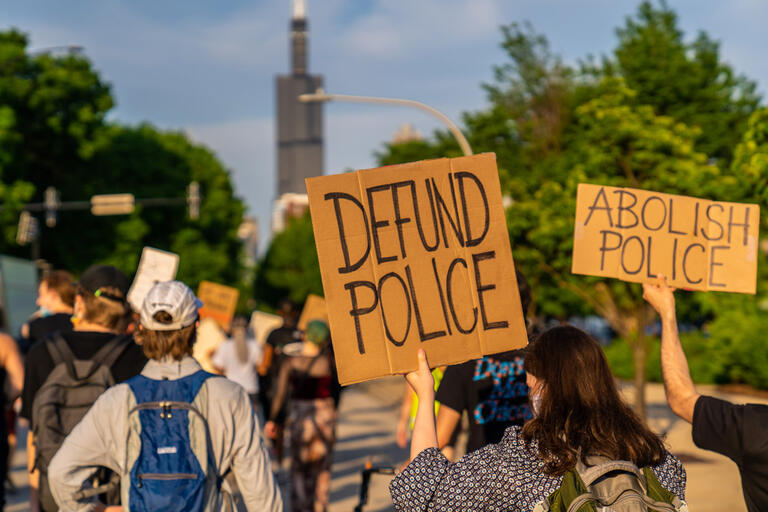
Center for Crime and Justice Policy News
Current Crime and Justice Policy News

A collection of news stories highlighting the experts and student changemakers at UNLV.
A collection of news stories highlighting health, recovery, and celebration at UNLV.
A collection of news stories featuring the people and programs of UNLV.

As more municipalities weigh the future of their police departments, UNLV professors explain what these movements mean and how they would work.

Triple-major Martha Amaya’s research explores the interactions between policing, public policy, and crowd science.

Criminal justice students gather public opinion on law enforcement use of drones and body-worn cameras before and after the Oct. 1 shooting.
Crime and Justice Policy In The News
The University of Nevada, Las Vegas, said that wildlife trafficking is a $10 billion industry, with millions of animals dying in transit each year. That's not surprising after seeing photos of the bound turtles in the Express story.
The ACLU has filed a number of lawsuits in Nevada on a variety of topics from stopping or standing ban on Las Vegas Strip pedestrian bridges to a new ordinance covering sleeping in cars in Sparks. Plus, we talk to the director of a new film about the Historic Westside.

The American Civil Liberties Union of Nevada is suing Clark County over an ordinance that bans stopping or standing on pedestrian bridges on the Las Vegas Strip.

Walking out onto the pedestrian bridge that connects the Cosmopolitan with the Shops at Crystals, the sound of Felicia Zaharoff’s violin soars above the crowds of tourists, conventioneers and the din of traffic below.
Las Vegas, renowned for its vibrant Strip and bustling Resort Corridor, is cracking down on all activities that disrupt the flow of traffic on the city’s elevated pedestrian walkways. So, stopping for selfies or other photos—or for any other reason, really—will become a practice of the past.

Last week, Clark County commissioners unanimously voted to make it illegal to stop or stand still on a pedestrian bridge or within 20 feet of the elevators, stairs or escalators connected to a pedestrian bridge on the Strip. Offenders could face a misdemeanor carrying up to six months in county jail and a fine of up to $1,000.
Crime and Justice Policy Experts

